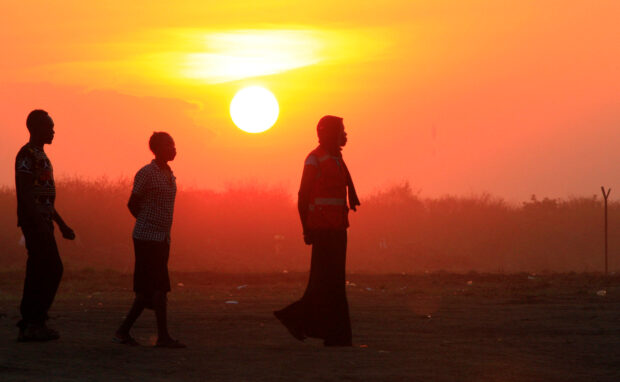Aid shortage leaves refugees in Uganda reliant on kitchen gardens

FILE PHOTO: People who fled fighting in South Sudan are seen walking at sunset on arrival at Bidi Bidi refugee’s resettlement camp near the border with South Sudan, in Yumbe district, northern Uganda December 7, 2016. REUTERS/James Akena
BIDI BIDI, Uganda — Watering the neat lines of green salad leaves outside her thatched home, Susan Konga, a South Sudanese woman living in a refugee camp in northern Uganda, is preparing her kitchen garden for the next harvest.
This year the success of her tireless cultivation will be put to the test – complete self-sufficiency.
Global crises like the war in Ukraine, the earthquake in Turkey and the drought in East Africa, mean there’s less food aid for people like Konga.
A 50% shortfall in funds this year has forced the United Nations World Food Program (WFP) to cut off the food supply for hundreds of thousands of refugees in Uganda, whch hosts more than any other country in Africa.
After six years in Uganda, Konga, a single mother, must now rely entirely on the maize, cassava and salad leaves grown in her small vegetable patch. The change in policy will make it difficult for her to adjust, she said.
Article continues after this advertisementKonga worries she will not be able to grow enough surplus produce to sell to pay for her two nieces’ school fees, and other basic household supplies like soap.
Article continues after this advertisement“For me to become sustainable it will take me more than three years, because now I don’t have enough land,” she said. “If I’m not supported, I can’t stand on my own.”
WFP says vulnerable refugees such as new arrivals, the sick and elderly, will continue to receive emergency food aid, but the organisation’s $180 million funding shortfall means others will have to be weaned off it.
“Donors are having to make very difficult decisions because the needs are enormous globally,” said Marcus Prior, country director at WFP Uganda.
The rains have been good so far, Konga said, but she will struggle to survive the periods between harvests.
“We are not yet stable,” she said. “I plead to them they should at least give food… so we can plan for what to do.”